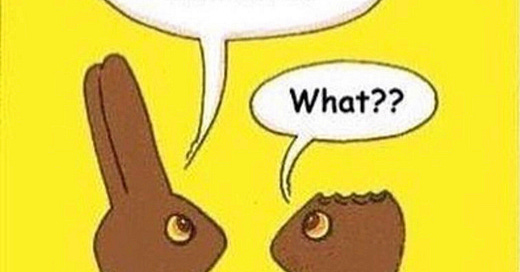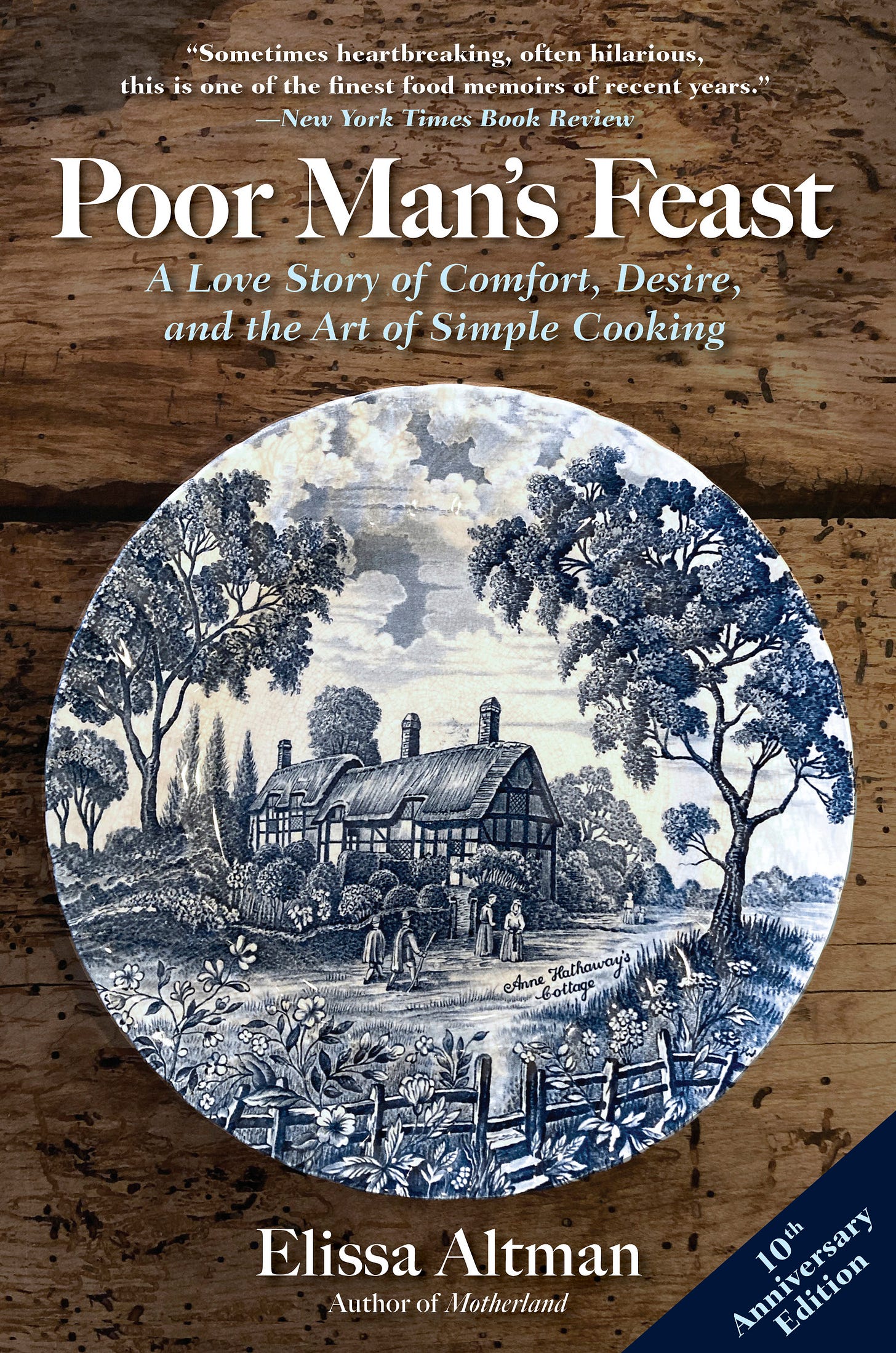Easter
Susan had gotten off easy, since the first holiday we’d celebrated with my family of extended cousins was Passover, and there’s a section in the Haggadah that says You shall not oppress a stranger, for you know the feelings of the stranger. It’s in the official rule book, and therefore against the law.
But my family didn’t exactly oppress; they just smiled and stared a lot, over the bowls of soup and the plates of matzo and moror, over the roasted shank bone and the bitter herbs. The Catholic woman I brought home to meet my Jewish family—they loved her at first sight—reached across the table for the vat of gefilte fish that we had made from scratch, dolloped a fish ball with enough horseradish to melt granite, and read every prayer when it came her turn. My father listened to her from his place at the end of the table, and cried again.
And then, a week or so later, it was my turn to dine with her family.
Easter is a peculiar holiday for Jews, and it can be a little nervous-making. The more secular among us may put up Christmas trees and swear up and down that it’s really just the solstice we’re celebrating, but no Jewish person I know of is going to hide a trail of Easter eggs for the kids to find in the backyard. We’re okay with a small, fat German man in a red suit breaking into the house and leaving Tiffany boxes and gold Schwinns under a tree, but when it comes to the specifics of the Easter holiday—that’s pretty much the rock bottom of our celebration scale.
But when I was invited to Susan’s family’s Easter celebration, I couldn’t say no, and so I tried to look at it as more of a cultural experience. Easter was Susan’s holiday—her favorite one, she told me, ever since she’d been a baby, when her father used to wait for her to fall asleep and then leave chocolate eggs scattered through the house.
“Did you have to wear a special outfit?” I asked. I was an Easter ignoramus.
“Of course; I got a new spring coat every Easter,” she said.
How nice, I thought. I got a box of waxy Manischewitz chocolate lollipops for finding a piece of the hidden matzo—the afikomen—accidentally left over from the previous Passover buried in the recesses of my grandmother’s yellow-striped Duncan Phyfe sofa.
And Susan got a coat.
“You’re sure they even know you’re Jewish?” my mother asked on the phone, when she called me at Susan’s to find out what I was wearing. It was Easter morning, and the outfit I’d cobbled together for myself—a lime green cable-knit sweater and pedal pushers covered in pastel hot air balloons—hung off the bedroom closet door knob.
“Of course they do—they must,” I responded, but then I asked Susan while I was getting dressed. She smiled sweetly, hugged me, and told me not to worry.
“They’re not without their prejudices,” she promised, “but I’ll be right there.”
“Great—“ I sighed, rolling my eyes as I got dressed.
I turned around and glanced at the mirror: I looked like the result of an explosion at a Lilly Pulitzer factory.
“You look perfect,” Susan said.
“I look like the spawn of Dina Merrill and Molly Picon.”
“Honey,” she soothed, “you’ll be fine. Worse comes to worse, we can always stay in the kitchen and cook.”
“And drink,” I added.
Keep reading with a 7-day free trial
Subscribe to Poor Man's Feast to keep reading this post and get 7 days of free access to the full post archives.






